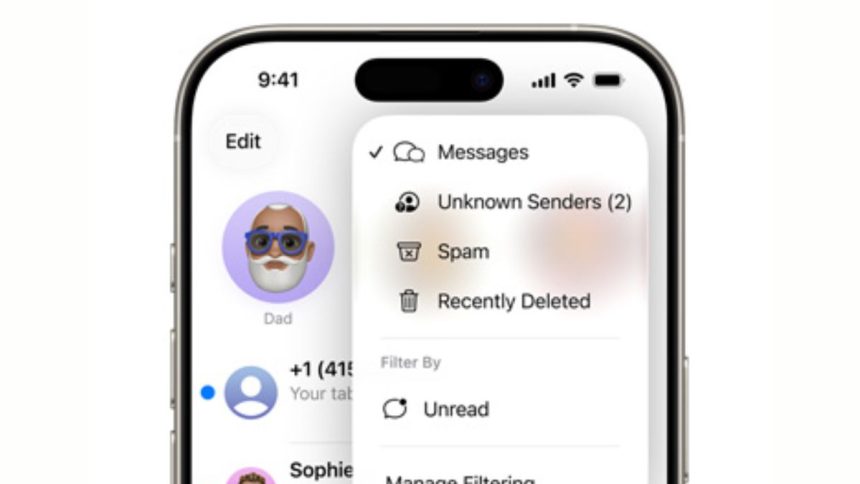Apple’s upcoming iOS 26 update introduces a new opt-in message filtering feature in its Messages app that automatically sorts texts from unknown senders into a separate “Unknown Senders” inbox without delivering notifications. While designed to reduce spam and clutter, this system has alarmed political fundraising groups, particularly the National Republican Senatorial Committee (NRSC), who fear it will drastically reduce their ability to reach potential donors and voters.
According to a detailed memo from the NRSC, political texts — even those from verified and compliant sources — will be treated like spam by default and pushed into this silent folder. Since users won’t receive alerts for these messages, many may never see critical political communications such as fundraising appeals, get-out-the-vote initiatives, and election day reminders. The memo warns this could cost the NRSC over $25 million in fundraising revenue alone, with broader GOP campaign losses potentially exceeding $500 million, given that 70% of small-dollar donations come via text and iPhones constitute about 60% of U.S. smartphones.
The filtering is not permanent spam deletion; messages remain accessible if users check the “Unknown Senders” tab or save the sender’s number to their contacts. Importantly, the feature is opt-in—meaning users must enable it to activate filtering—but advocates worry many users will adopt it, thereby limiting political outreach.
This update reflects Apple’s commitment to giving users greater control over message clutter, but it poses real challenges for political campaigns reliant on text messaging as a high-impact communication and fundraising tool.
iOS 26 is expected to launch to the public in mid-September 2025, supporting iPhones back to the iPhone 11. The political groups urge immediate industry pushback, citing a narrow window to influence changes before widespread rollout.
This development underscores a tension between enhanced user privacy and the operational realities of political campaigning in the digital age.






